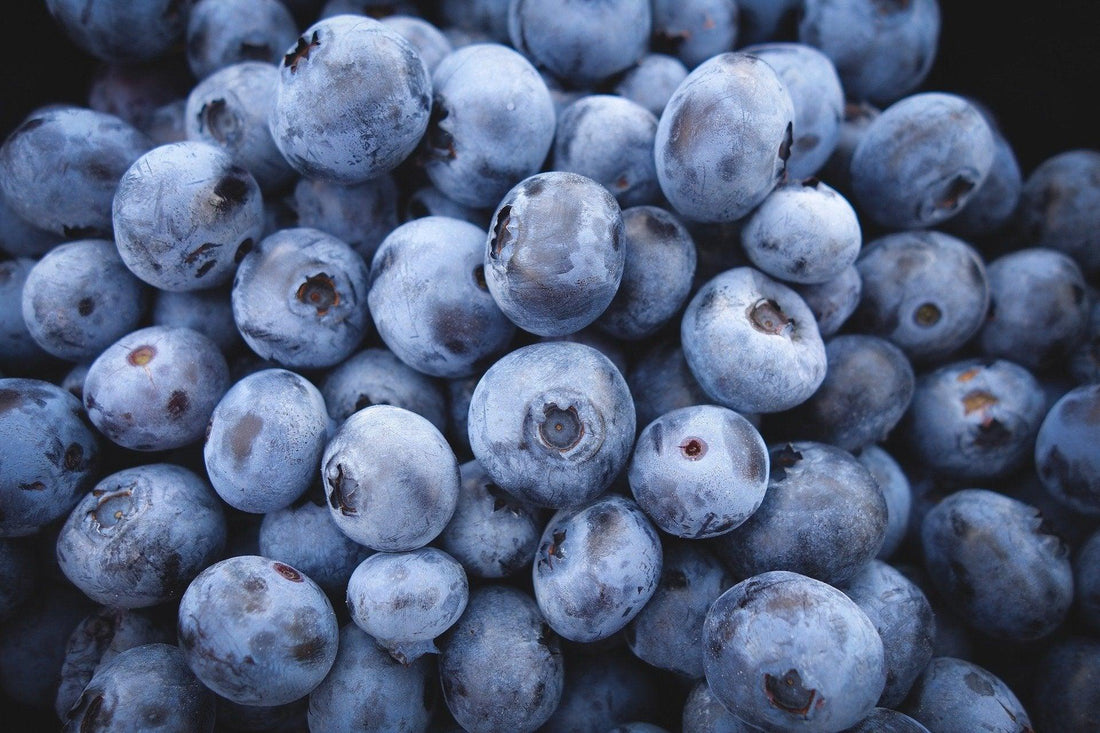What is an antioxidant?
Antioxidants are substances that can prevent or slow damage to cells caused by free radicals.
Free radicals are unstable molecules that the body produces in reaction to internal phenomena such as breathing, inflammation or environmental factors such as exposure to certain chemicals, UV rays, smoking, pollution, radiation, a diet that is too sweet...
There are two main categories of antioxidants:
- Endogenous antioxidants, which the body produces naturally (enzymes)
- Exogenous antioxidants, which come from outside the body, notably through food (selenium, vitamins A, C and E, carotenoids)
→ Example: in fruits, vegetables, mushrooms, nuts, etc.
Certain foods of plant origin are rich in antioxidants and have beneficial properties for health: they are called phytonutrients (carotenoid, flavonoid, polyphenol, phytoestrogen, etc.).
Mushrooms and plants: major producers of antioxidants
Reishi, Shiitake, Chaga, Maïtake, Hericium, Oyster mushrooms: all the mushrooms present in each of our treatments are full of antioxidants. Mushrooms are the largest producers of ERGO ( sulfur-containing amino acid ergothioneine ) and glutathione, powerful antioxidants naturally present in all organisms.
Japanese Knotweed is rich in resveratrol which helps stimulate the functioning of mitochondria while inhibiting certain inflammatory factors and fighting against oxidative stress.
THE Broccoli contains sulforaphanes which help fight damage caused by free radicals.
The bark of Maritime pine provides the body with the antioxidants necessary to regenerate the epidermis (skin).
Haematoccocus is an algae rich in asthaxanthin which helps fight damage caused by free radicals.
OPC (grape seeds) help protect cells as a whole from free radical attack.
Are you interested in this article?
Take the opportunity to answer our questions and discover our treatment adapted to your needs.
MAKE MY DIAGNOSIS
Oxidative stress damage and the role of antioxidants
Free radicals, also known as reactive oxygen species (ROS), are waste substances produced by cells when the body processes food and responds to our external environment. If the body cannot effectively process and eliminate free radicals, it can result in oxidative stress that harms the body's cells and function. The main role of antioxidants is therefore to neutralize free radicals in our body, thereby improving general health.
The benefits of antioxidants for our health
An intake of antioxidants reduces the risk of cancer, atherosclerosis ( a disease affecting large and medium-sized arteries and characterized by the appearance of atherosclerotic plaques ) and problems related to vision. Indeed, according to the study “Free radicals, antioxidants and functional foods: Impact on human health” (2010): antioxidants act at different levels on molecules to slow down the aging of body cells (they are both sensors of radicals, hydrogen donors, electron donors, enzyme inhibitors).
Other research has indicated that antioxidant supplements may help reduce vision loss due to macular degeneration (the part of the retina that functions to differentiate between day and night lighting) in older adults. .
So, eating foods rich in antioxidants is great for your heart and can help reduce your risk of infections and some forms of cancer. We must therefore increase our consumption of antioxidants by eating more nuts, seeds, legumes, fruits and vegetables (mushrooms) or by integrating the taking of food supplements into our routine in order to ensure our daily antioxidant needs without effort. .
Increasing your intake of antioxidants is essential for optimal health, particularly in our environment which is often saturated with pollution. This is because the body simply cannot ensure sufficient production of antioxidants and a good quantity of vitamins, minerals, phytochemicals (found in plants such as carotenoids and flavonoids) and enzymes. Antioxidant intake should come from our daily diet and be increased to further help the body against:
- heart problems
- eye problems
- memory loss
- mood disorders
- a weakened immune system
Are you interested in this article?
Take the opportunity to answer our questions and discover our treatment adapted to your needs.
MAKE MY DIAGNOSIS
Bibliography:
- Suphaphit BOONSONG et al., “Antioxidant activities of extracts from five edible mushrooms using different extractants”, 2016, in Agriculture and Natural Resources , p.89-97
- Michael D. KALARAS et al., “Mushrooms: A rich source of the antioxidants ergothioneine and glutathione”, 2017, in Food Chemistry , p.429-433

